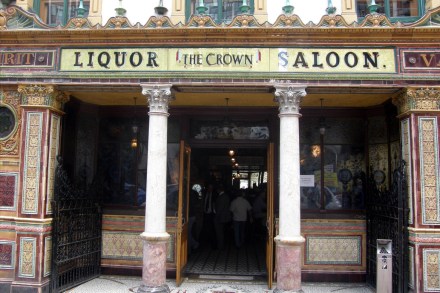Give Baltimore a chance
You saw Homicide: Life on the Street, right? You know, that gritty TV police drama set in Baltimore. What? Ah, no, you’re thinking of The Wire, that other gritty TV police drama set in Baltimore, the one with Idris Elba and Dominic West. Homicide predates The Wire and was filmed largely around Fells Point and along Baltimore’s historic waterfront. The former City Recreation Pier, which stood in for the police department, is now a swanky hotel, the Sagamore Pendry Baltimore, in whose comfortable embrace I have just wallowed. Baltimore doesn’t have a great reputation. Whenever I tell American friends I’ve been there they affect horror and ask what on earth I was thinking. Couldn’t I have gone to Boston, New




















